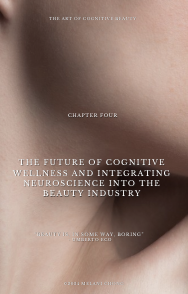EPA Issues Draft Policy to Reduce Animal Testing for Skin Sensitization

 |
| EPA Issues Draft Policy to Reduce Animal Testing for Skin Sensitization |
Non-animal Alternatives Available
EPA Administrator Scott Pruitt, said:“This draft policy is another step toward achieving EPA's goal of reducing the use of animals and increasing the use of cutting-edge science in chemical testing.”
The document, Draft Interim Science Policy: Use of Alternative Approaches for Skin Sensitization as a Replacement for Laboratory Animal Testing, describes the science behind the non-animal alternatives that can now be used (in vitro, in silico, in chemico) to identify skin sensitization. EPA currently requires these data to support pesticide registrations.
Result of Collaboration
Given the substantial scientific evidence and international activities supporting the new methodologies for skin sensitization testing, EPA will begin accepting these approaches immediately under the conditions described in the draft policy document. This draft policy is the result of national and international collaboration between the following:- The Interagency Coordinating Committee on the Validation of Alternative Methods
- The National Toxicology Program’s Interagency Center for the Evaluation of Alternative Toxicological Methods
- The European Union Reference Laboratory for Alternatives to Animal Testing
- Health Canada’s Pest Management Regulatory Agency
Another Milestone Fulfilled
Under Administrator Pruitt’s leadership, the Agency has made strides to overall reduce the use of animal testing. Last month, EPA fulfilled another milestone in the Frank R. Lautenberg Chemical Safety for the 21st Century Act, which amended the Toxic Substances Control Act (TSCA), when it released a draft strategy to reduce or replace the use of vertebrate animals in tests of chemical substances manufactured, processed, or imported in the United States.Also in MC2 BLOG

Welcome to The Future of Neuro Beauty
The understanding of Cognitive Beauty opens new possibilities for beauty treatments that go beyond surface-level aesthetics and delve into the underlying neurobiology of beauty and the diverse world of aesthetics.

Your Skin Is A Quantum Communicator
Your skin is a sensory force field, constantly receiving and emitting powerful signals. It’s how you interact with the world and how the world interacts with you.
Your skin is a quantum communicator—it picks up vibrations, temperature changes, even emotional energy from others - Melani Chong

The Skin - Brain Axis - How It works
Melani Chong Neuro Beauty Expert ::: The Skin-Brain Superhighway
Did you know your skin and brain have a hotline to each other? Yep, they're chatting 24/7 through a superhighway of nerves and biochemicals. Stress, mood, and even how well you sleep can affect your glow-up game.
Because understanding this connection gives you the power to take control of your skin's story. Managing stress, sleeping well, and using neurocosmetic ingredients can help keep both your mind and skin in harmony.

